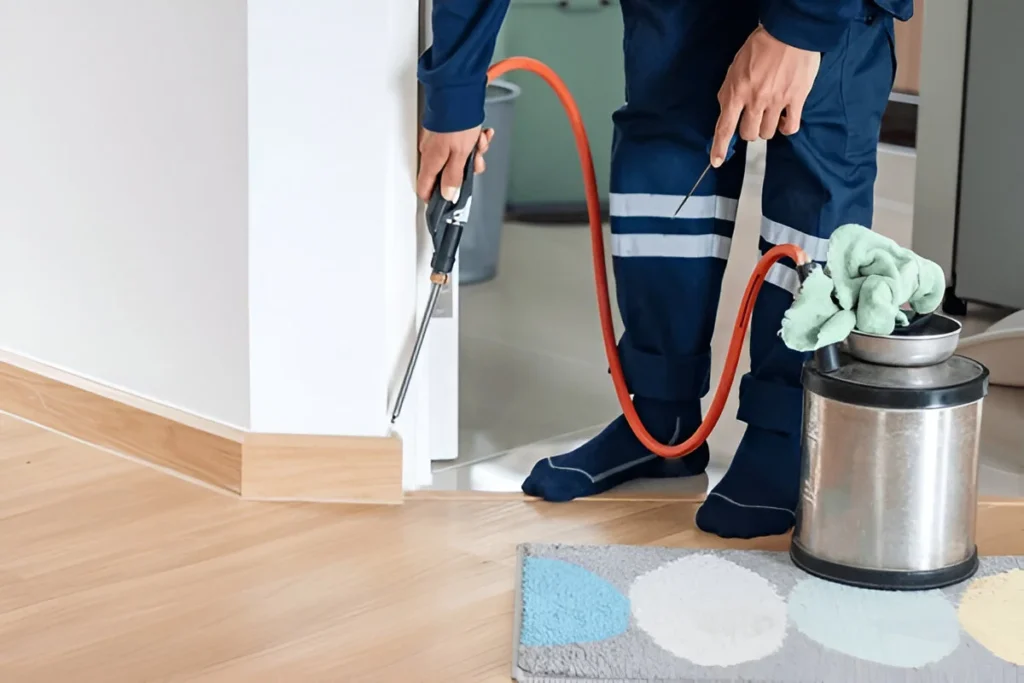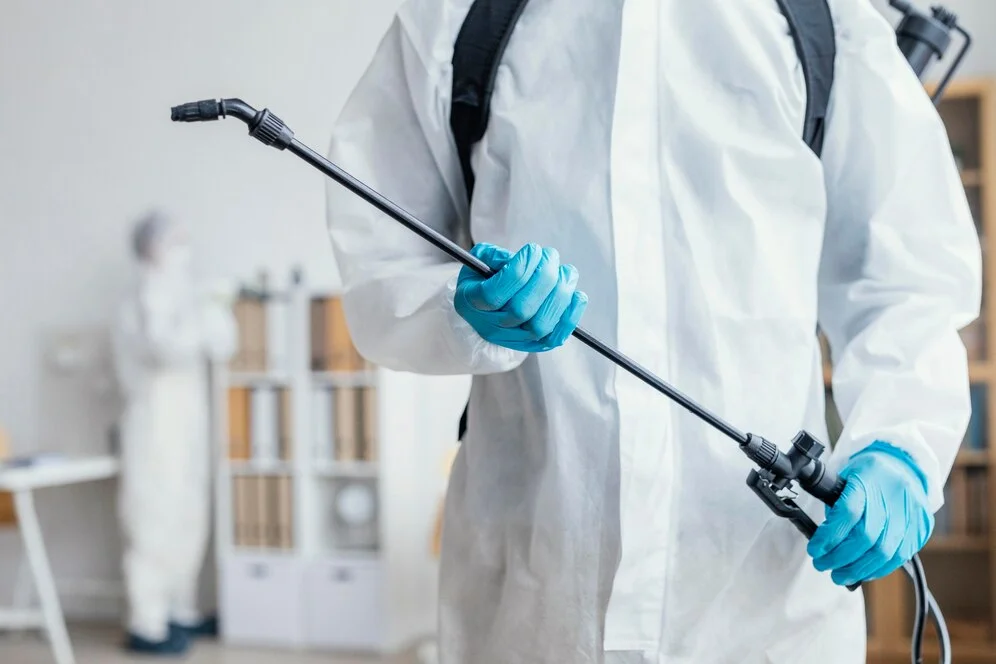-
Govind Bhawan,Kolkata - 700001
Govind Bhawan,Kolkata - 700001

DIY Termite Control may seem cost-effective, but it often leads to hidden risks and damage. Learn why professional help is advised from a reputable pest control company.
Termites are silent destroyers. By the time you spot the signs—hollow-sounding wood, mud tubes on walls, or bubbling paint—they’ve often been feeding on your home’s foundation for months. In the age of online hacks and quick fixes, DIY termite control might seem like an easy way to handle the problem.
But is it really effective?
The answer, backed by both science and long-standing industry experience, is: not often. In fact, trying to manage termites yourself can cause more harm than good. Let’s dive into why opting for professional care is not just safer but smarter.

Before diving into the downsides of DIY termite control, it’s important to understand the nature of the pest itself.
Unlike surface-level pests like ants or cockroaches, termites live in hidden colonies, often deep inside walls or below your floors. Spotting them is tough. Controlling them without professional equipment is even tougher.
While you may find DIY kits, boric acid solutions, and even vinegar hacks online, their long-term effectiveness is questionable—and potentially dangerous. Here’s why:
Termites don’t live in isolation. Killing a few visible ones doesn’t remove the colony. DIY methods rarely reach:
Many DIY solutions involve chemicals not meant for indoor use. Without protective gear or proper dilution:
DIY approaches often buy time, not solutions. While you’re trying one method after another, termites continue feeding. Structural wood, furniture, and electrical conduits are all at risk.
When termites go quiet after a surface treatment, it’s easy to assume they’re gone. But in reality, they often move deeper into the structure—waiting for the next opportunity.

Experts trained in termite control don’t just eliminate pests—they assess, plan, and prevent recurrence. Here’s what separates professional treatment from a DIY termite control attempt:
Professionals use moisture meters, infrared tools, and detailed knowledge of termite behavior to:
Licensed companies have access to industry-grade, eco-safe solutions approved for residential and commercial spaces.
Advanced methods like:
…are designed to eliminate the root of the problem—the colony, including the queen.
Termite management isn’t a one-time task. Experts provide:
This is why homeowners across India increasingly rely on experts from a professional pest control company to handle such deep-rooted infestations.
Let’s look at some real-world ways DIY termite control goes wrong and leads to greater expense or risk:
Not all wood-damaging insects are termites. Powderpost beetles or carpenter ants may be mistaken for them, leading to the wrong treatment.
Some DIYers apply boric acid or permethrin in unsafe quantities, causing:
Spraying vinegar or neem oil in cracks does nothing for colonies located meters underground. It only pushes termites to shift and attack unnoticed.
Weeks spent on failed DIY solutions allow termites to expand and damage the internal structure. By the time professionals are called, costs for repair and treatment are much higher.
Leading entomologists and pest control professionals agree on one point: Termites require targeted, persistent, and professional-grade treatment. They recommend:
Such advice is often available in certified training modules, journals, and technical manuals—resources far beyond a DIY video.
Here are some red flags where DIY is not an option and professional assistance is urgent:
In these cases, quick action can mean the difference between a minor repair and a full-scale rebuild.

Boric acid may kill a few termites on contact but doesn’t reach or eliminate the colony. It is not a permanent solution.
While temporary deterrents may help for minor signs, they are never a substitute for full inspection and treatment by professionals.
Depending on the method, treatments can last anywhere from 1 to 5 years with routine checks.
Yes—especially when placed and maintained correctly by trained professionals.
Most modern termite treatments are low in toxicity and safe when applied by licensed technicians following safety guidelines.
The appeal of DIY termite control lies in convenience and low upfront cost. But the risks—structural damage, unsafe chemical use, and false results—can far outweigh the savings.
If there’s one thing termite infestations teach us, it’s this: timely, professional intervention saves more in the long run.
Whether you’re safeguarding your home, your business, or a construction project, rely on trained professionals who understand the science and strategy behind effective termite control. It’s not about just killing bugs—it’s about preserving your structure, health, and peace of mind.
For those seeking trusted guidance and deep-rooted solutions, industry leaders offer the technology, training, and tools that go far beyond any do-it-yourself attempt.